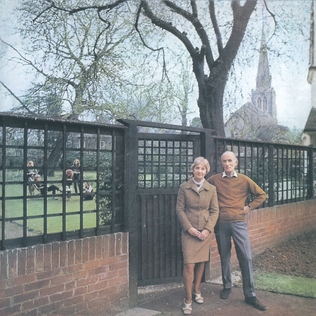Unhalfbricking
| Unhalfbricking | ||||
|---|---|---|---|---|
 |
||||
| Studio album by Fairport Convention | ||||
| Released | 3 July 1969 | |||
| Recorded | January–April 1969 | |||
| Studio | Sound Techniques and Olympic Studios, London | |||
| Genre | Folk rock | |||
| Length | 39:24 | |||
| Label | Island | |||
| Producer |
|
|||
| Fairport Convention chronology | ||||
|
||||
| 1969 US release | ||||
 |
||||
| Singles from Unhalfbricking | ||||
|
||||
| Professional ratings | |
|---|---|
| Review scores | |
| Source | Rating |
| Allmusic | |
| Robert Christgau | A− |
| PopMatters | |
Unhalfbricking is the third album by the British folk rock band Fairport Convention and their second album released in 1969. It is seen as a transitional album in their history and marked a further musical move away from American influences towards more traditional English folk songs that had begun on their previous album, What We Did on Our Holidays and arguably reached its peak on the follow-up, Liege & Lief, released later the same year.
Although featuring several at the time unreleased Bob Dylan songs, the album also marked Sandy Denny's maturation as a singer and songwriter, including "Who Knows Where the Time Goes?", a song covered by many other performers and now regarded as a classic. The only traditional song on the album, "A Sailor's Life", is seen as pivotal in the development of English folk rock music.
Changes in the line-up of the band, due not only to its musical direction but also to external events, mark this album as a turning point in the band's history. 1969 was a prolific year for Fairport Convention; from What We Did on Our Holidays to Liege & Lief within twelve months represented a major development.
The album also gave the band their first UK chart success, reaching number 12 in the UK album chart (the second highest position in the band's entire career), while the single release, "Si tu dois partir", achieved number 21 in the UK singles chart.
On 11 May 1969, two months before the album was released, drummer Martin Lamble and guitarist Richard Thompson's girlfriend, Jeannie Franklyn, were killed in a car crash as the band were returning from a concert in Birmingham. Simon Nicol later said:
That was a big watershed, I think. In the aftermath, we thought a lot about what to do, whether to call it a day. It had been fun while it lasted but it took a definite effort of will to continue. It had given us a lot but now it had taken away a lot: was it worth it if it was going to cost people their lives? Martin was only 18 or 19 years old. He would have gone on to have been so much more than just another drummer, another musician: there was something very special about him.
...
Wikipedia
